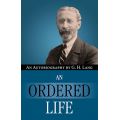Gary Maske
- Comment
In his twenties, prior to embarking on his itinerant ministry, Mr. Lang pastored a church in Bristol, England (the same city where was found Müller and Craik’s Bethesda Chapel). As a pastor in the conventional (and unbiblical) use of the term, Mr. Lang came to understand that his pastorate was not the New Testament pastorate expressly indicated in Acts 20, I Timothy 3, and I Peter 5; also that the conventional pastorate was not only incompatible with itinerancy and eldership but also with a free exercise of the speaking gifts in the church on the Lord’s day. In the synagogues Jesus and Paul and the apostles were able to enter and “say on.” But in the churches under the reigning system they would have needed “scheduling in advance,” for, after all, the pastor is already scheduled to teach on Ephesians 5 this week!
Mr. Lang recounts that on New Year’s Day 1919 friends took him to special meetings in the town of Ayr on the western coast of Scotland. Mr. Lang was subsequently asked to hold a week of meetings, and these commenced January 11. Thereafter these Christians desired even more teaching from Mr. Lang, and this continued for over eight weeks’ duration, to the edification of many souls. The author continues,
“At the close I said to myself, that had I been booked up for meetings many months ahead, as usually was the case, I could not have had this privilege; and I resolved that, as the Lord was ready so to work when His servant was really at His ordering, there should be no further long-distance bookings for me, but I would follow guidance as it might be given, even were it from day to day. Since then my service has been one continuous experience of distinct guidance and perpetual working of the Holy Spirit. It had been thus in service in other lands; now it became so in England, as it ought always to have been."
He went on to say,
“The New Testament makes clear that this was the method by which the Head of the church then controlled His work and workers. The closer we work to His own revealed ways the more He can use us. The merely human system of arranging for preachers which is now the rule, is a chief cause of the little unction felt and the poor effects mourned. A convener of an annual Conference asked me in March if I would be one of the speakers for the following May twelvemonth. I answered that I would if he could tell me how to find out where my Master would wish me to be next May twelvemonth, for I did not know how to find out. As he could not help in this the matter dropped. On no account could I consent to turn back from the way of the Lord to the human method of service in the Word. It is borrowed from the world and bears no relation to that manifesting of the presence of the Spirit of God which is a chief reason for the presence on earth of the church of God (I Cor. 12:7).”
Mr. Lang, having studied his New Testament, saw that “scheduling preachers and teachers” overruled the Head’s issuing direct orders to ministry in the members of His body (for that is how the head works in the human body), for the reason that this “planning” invariably preempted and supplanted the work of the Spirit in others with speaking gifts. He saw that this principle applied to “scheduling conference speakers,” to paying professionals to monopolize the same pulpit for years or decades, and for “rotating teacher schedules.” What he found in his New Testament was not a “missions model” but simply itinerant ministry supported by the saints; and local, independent churches ministering to one another according to gift. Mr. Lang was careful to say that God may indeed condescend to work through human arrangements for ministry, but that He is under no obligation to do so, that often He does not do so, and that at any rate there is little unction in these ministries, even those most sound and orthodox in doctrine. “Little unction” in that their soundness of doctrine does not extend to the area of ecclesiology, i.e., the doctrine of the church, that which is essential “for the work of the ministry, for the edifying of the body of Christ,” Eph. 4:12.
“An Ordered Life” is replete with anecdotes concerning the author’s experiences with benevolent and hospitable brethren, spiritual and carnal believers, those who received and those who rejected his gospel message, local church problems and their resolution, in “knowing how to be abased and how to abound,” in sickness, in health, in perils, in heat and in cold, and in hunger (though the author reports he regularly did well on a spartan diet). In other words his was a thoroughly apostolic experience! (I do not mean he thought himself an apostle.)
To my knowledge Mr. Lang was the last in a line of teachers of “church truth” that began with Anthony Norris Groves in the 1820’s and included George Müller, Thomas Hughes Milner, and E.H. Broadbent. All, save Milner, were Open Brethren. Mr. Lang died in 1958. Where have these men gone?



